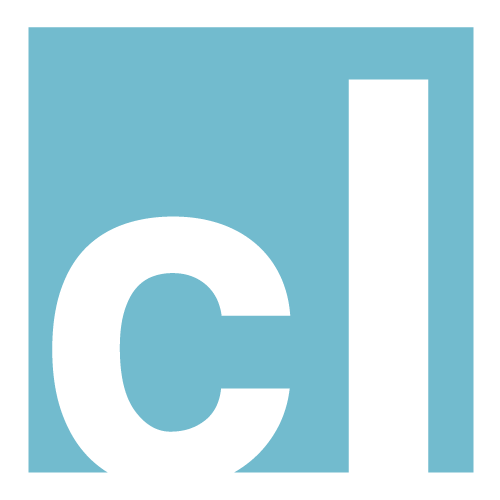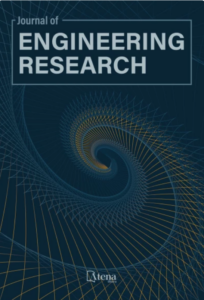Publication Announcement: Journal of Engineering Research
I am thrilled to share our latest publication in the esteemed Journal of Engineering Research. The paper, titled «Disclosure of Support Statement: Increasing Student Transparency About Support from Software Like ChatGPT,» is a collaborative effort with distinguished colleague Dr. James Lipuma, who served as the lead author, and myself as coauthor, contributing significantly to the research and writing processes. It’s an honor to be part of this paper (Lipuma & León, 2024).
Paper Abstract:
This article presents the development and pilot testing of a Disclosure of Support Statement (DSS) tool to promote transparency and student engagement in academic writing. In an era where human and software supports play integral roles in completing written work, it is essential to consider the contributions of human sources and the impact of artificial intelligence software (AIS) tools. The DSS tool encourages students to reflect on how much they utilize human and software supports, including professors, peers, librarians, tutors, and AIS tools such as search engines and grammar-checking software. The ethical implications and boundaries of using these supports are explored through a series of reflective questions and class discussions. The pilot study involves a senior seminar class and utilizes the DSS alongside written reports and a literature review. The ultimate goal is to increase transparency in student work, encourage critical thinking about support options, and initiate conversations about academic integrity and the purpose of education. The data collected from the pilot tests will provide insights into student attitudes and pave the way for further analysis and refinement of the DSS tool. By embracing transparency and fostering open dialogue, educators can empower students to make informed choices in seeking support, thus enhancing their writing skills and ethical understanding within the academic environment.
Keywords
Disclosure of Support Statement, Transparency, Student engagement, Academic writing, Artificial intelligence software, Human support, Software support, Academic integrity, Ethical implications, and Educational process.
Presented at IIIS 2023:
International Institute of Informatics and Systemics 2023 Summer Conferences Proceedings (Lipuma & León, 2023)
Read Our Paper
You can access our paper in the Journal of Engineering Research, Vol. 4, No. 7, pp. 1-11, 2024. https://doi.org/10.22533/at.ed.317472426025
Acknowledgments
Special thanks to the blind reviewers, whomever you may be, for your notes and observations that improved the final version.
NONBLIND PEER-REVIEWERS
Bruce Bukiet, Professor of Mathematical Sciences, New Jersey Institute of Technology.
Quinn I Morris-Pearson, Research and Instruction Librarian, New Jersey Institute of Technology.
Catherine Siemann, Senior University Lecturer, Humanities & Social Sciences, New Jersey Institute of Technology.
Disclosure statement
No conflict of interest pertains to the research presented above.
ORCID
James Lipuma https://orcid.org/0000-0002-9778-3843
Cristo Leon https://orcid.org/0000-0002-0930-0179
Copyright
All content in this magazine is licensed under a Creative Commons Attribution License. Attribution-Non-Commercial-Non-
Derivatives 4.0 International (CCBY-NC-ND 4.0).
Español
Anuncio de Publicación: Revista de Investigación en Ingeniería
Estoy emocionado de compartir nuestra última publicación en la estimada Revista de Investigación en Ingeniería. El artículo, titulado «Declaración de Divulgación de Apoyo: Aumentando la Transparencia Estudiantil Sobre el Apoyo de Software Como ChatGPT», es un esfuerzo colaborativo con el distinguido colega Dr. James Lipuma, quien fungió como autor principal, y yo como coautor, contribuyendo significativamente al proceso de investigación y escritura. Es un honor ser parte de este artículo (Lipuma & León, 2024).
Resumen del Artículo:
Este artículo presenta el desarrollo y la prueba piloto de una herramienta de Divulgación de Declaración de Apoyo (DSS) para promover la transparencia y la participación de los estudiantes en la escritura académica. En una era en la que los soportes humanos y de software desempeñan un papel integral a la hora de completar el trabajo escrito, es esencial considerar las contribuciones de las fuentes humanas y el impacto de las herramientas de software de inteligencia artificial (AIS). La herramienta DSS anima a los estudiantes a reflexionar sobre cuánto utilizan los apoyos humanos y de software, incluidos profesores, compañeros, bibliotecarios, tutores y herramientas AIS, como motores de búsqueda y software de revisión gramatical. Las implicaciones éticas y los límites del uso de estos apoyos se exploran a través de una serie de preguntas reflexivas y debates en clase. El estudio piloto involucra una clase de seminario para personas mayores y utiliza el DSS junto con informes escritos y una revisión de la literatura. El objetivo final es aumentar la transparencia en el trabajo de los estudiantes, fomentar el pensamiento crítico sobre las opciones de apoyo e iniciar conversaciones sobre la integridad académica y el propósito de la educación. Los datos recopilados de las pruebas piloto proporcionarán información sobre las actitudes de los estudiantes y allanarán el camino para un mayor análisis y perfeccionamiento de la herramienta DSS. Al adoptar la transparencia y fomentar el diálogo abierto, los educadores pueden capacitar a los estudiantes para que tomen decisiones informadas al buscar apoyo, mejorando así sus habilidades de escritura y su comprensión ética dentro del entorno académico.
Palabras Clave
Divulgación de declaración de apoyo, Transparencia, Participación estudiantil, Escritura académica, Software de inteligencia artificial, Apoyo humano, Soporte de software, Integridad académica, Implicaciones éticas y Proceso educativo.
Presentado en IIIS 2023:
Actas de las Conferencias de Verano 2023 del Instituto Internacional de Informática y Sistémica (Lipuma & León, 2023)
Lee Nuestro Artículo
Puedes acceder a nuestro artículo en la Revista de Investigación en Ingeniería, Vol. 4, No. 7, pp. 1-11, 2024. https://doi.org/10.22533/at.ed.317472426025
Agradecimientos
Un agradecimiento especial a los revisores ciegos, quienquiera que sean, por sus notas y observaciones que mejoraron la versión final.
REVISORES NO CIEGOS
Bruce Bukiet, Profesor de Ciencias Matemáticas, Instituto Tecnológico de Nueva Jersey.
Quinn I Morris-Pearson, Bibliotecario de Investigación e Instrucción, Instituto Tecnológico de Nueva Jersey.
Catherine Siemann, Profesora Universitaria Senior, Humanidades y Ciencias Sociales, Instituto Tecnológico de Nueva Jersey.
Declaración de Divulgación
No existe conflicto de interés con respecto a la investigación presentada arriba.
ORCID
James Lipuma https://orcid.org/0000-0002-9778-3843
Cristo León https://orcid.org/0000-0002-0930-0179
Derechos de Autor
Todo el contenido de esta revista está licenciado bajo una Licencia de Atribución de Creative Commons. Atribución-No Comercial-Sin Derivadas 4.0 Internacional (CCBY-NC-ND 4.0).
Sources
Lipuma, J., & León, C. (2023). Disclosure of Support Statement: Increasing Student Transparency About Support from Software Like ChatGPT [Conference paper]. In N. Callaos, J. Horne, B. Sánchez, & M. Savoie (Eds.), Proceedings of the 17th International Multi-Conference on Society, Cybernetics and Informatics: IMSCI 2023 (CLDM_Ds; pp. 51–55). International Institute of Informatics and Cybernetics; /Research/Education. https://doi.org/10.54808/IMSCI2023.01.51
Lipuma, J., & León, C. (2024). Disclosure of Support Statement: Increasing Student Transparency About Support from Software Like ChatGPT [JMER]. Journal of Engineering Research, 4(7), 11. /Research/Education. https://doi.org/10.22533/at.ed.317472426025

